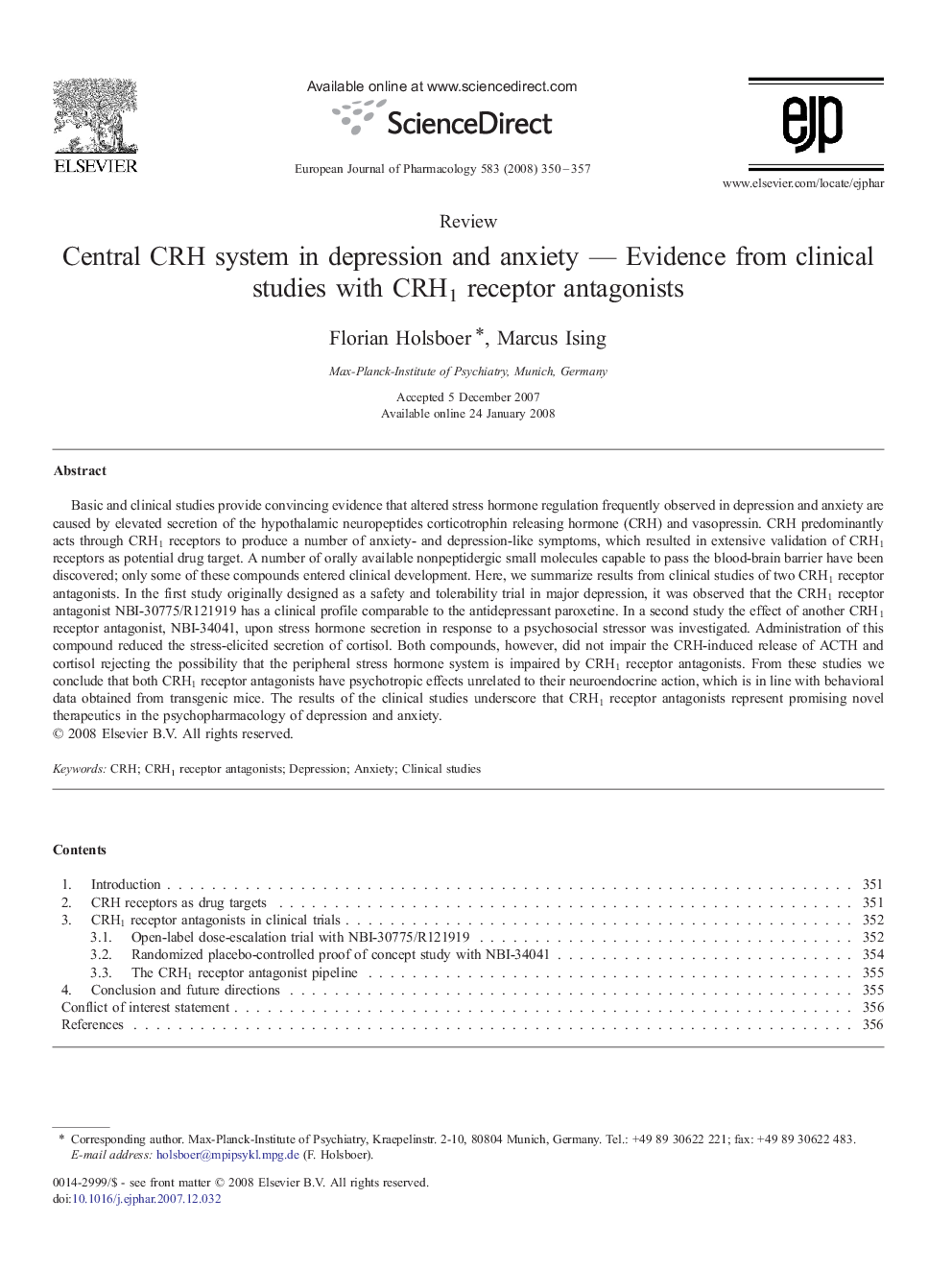| Article ID | Journal | Published Year | Pages | File Type |
|---|---|---|---|---|
| 2535463 | European Journal of Pharmacology | 2008 | 8 Pages |
Basic and clinical studies provide convincing evidence that altered stress hormone regulation frequently observed in depression and anxiety are caused by elevated secretion of the hypothalamic neuropeptides corticotrophin releasing hormone (CRH) and vasopressin. CRH predominantly acts through CRH1 receptors to produce a number of anxiety- and depression-like symptoms, which resulted in extensive validation of CRH1 receptors as potential drug target. A number of orally available nonpeptidergic small molecules capable to pass the blood-brain barrier have been discovered; only some of these compounds entered clinical development. Here, we summarize results from clinical studies of two CRH1 receptor antagonists. In the first study originally designed as a safety and tolerability trial in major depression, it was observed that the CRH1 receptor antagonist NBI-30775/R121919 has a clinical profile comparable to the antidepressant paroxetine. In a second study the effect of another CRH1 receptor antagonist, NBI-34041, upon stress hormone secretion in response to a psychosocial stressor was investigated. Administration of this compound reduced the stress-elicited secretion of cortisol. Both compounds, however, did not impair the CRH-induced release of ACTH and cortisol rejecting the possibility that the peripheral stress hormone system is impaired by CRH1 receptor antagonists. From these studies we conclude that both CRH1 receptor antagonists have psychotropic effects unrelated to their neuroendocrine action, which is in line with behavioral data obtained from transgenic mice. The results of the clinical studies underscore that CRH1 receptor antagonists represent promising novel therapeutics in the psychopharmacology of depression and anxiety.
